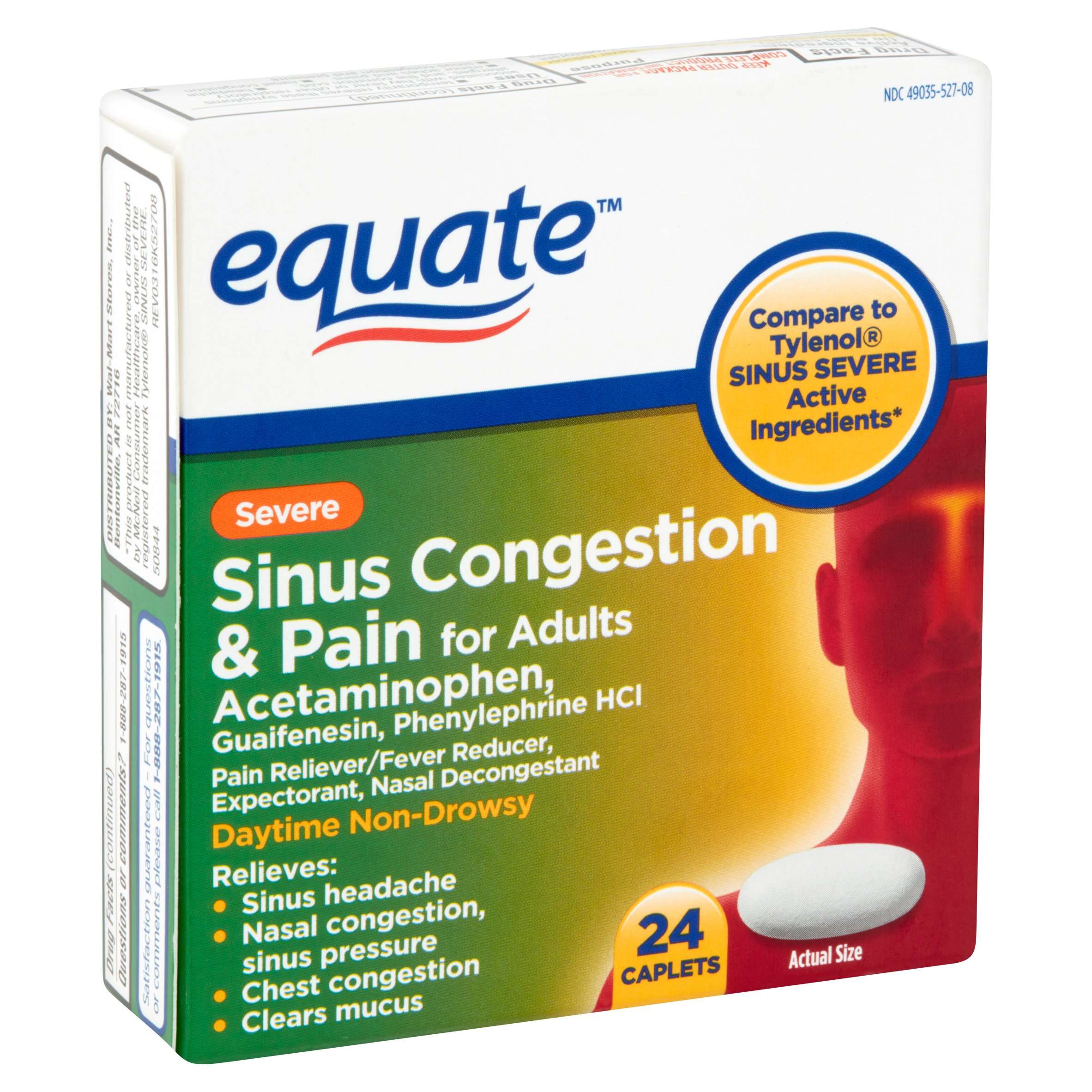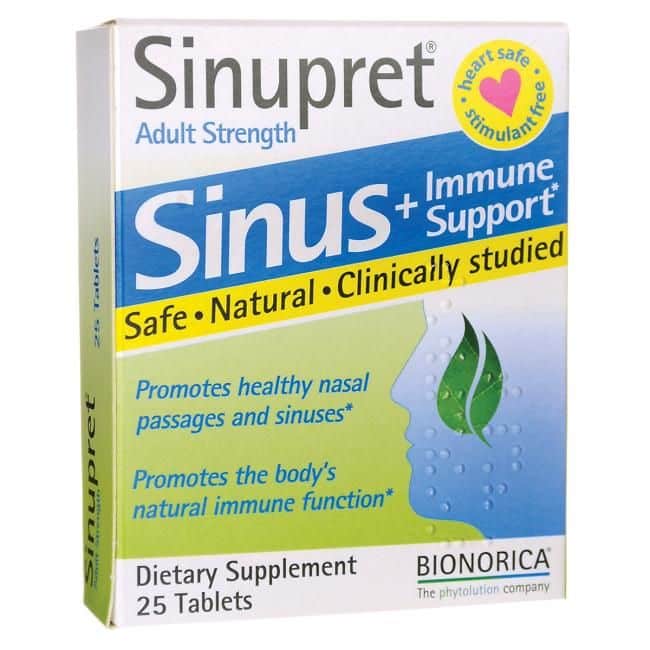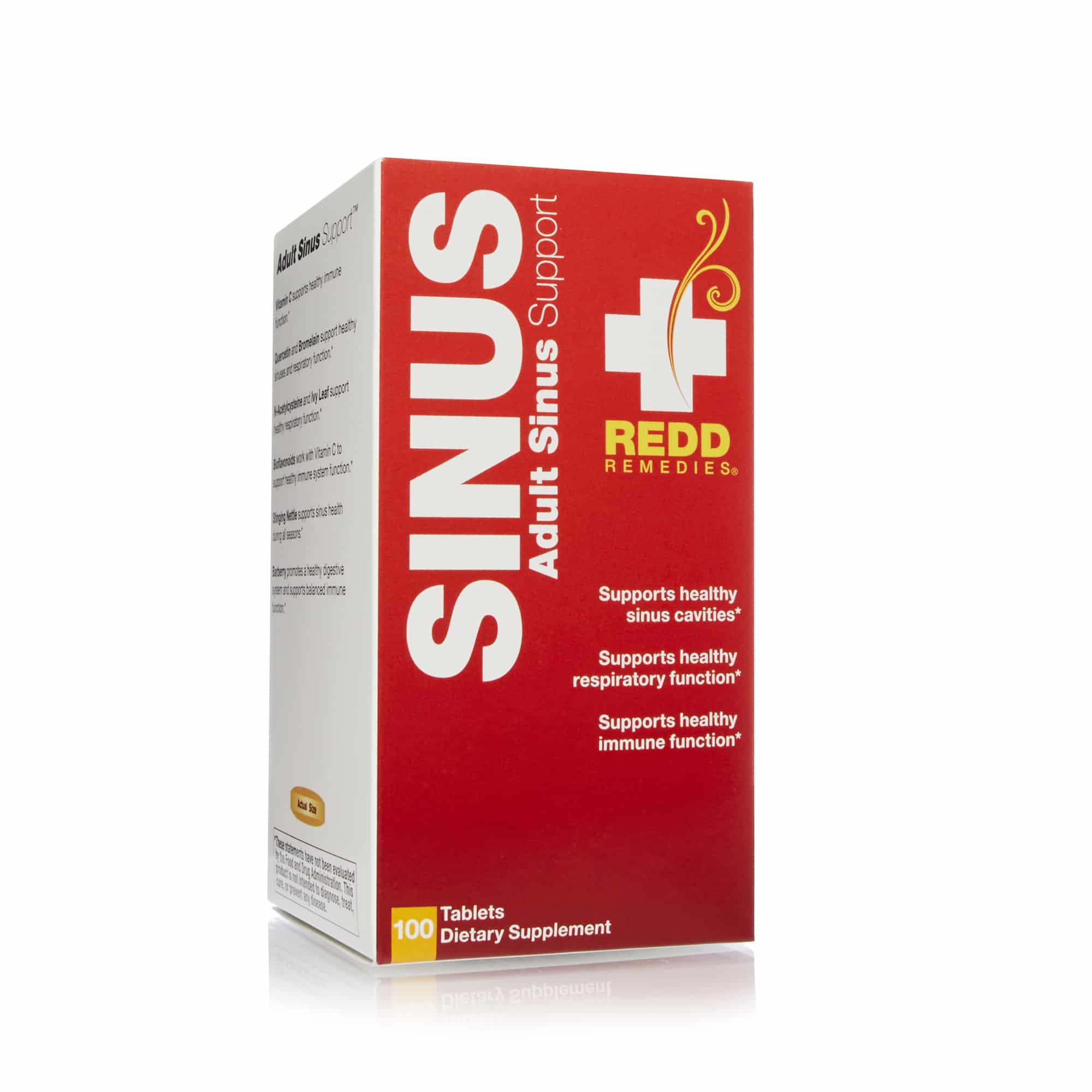Symptoms And Signs Of Sinusitis
Acute and chronic sinusitis cause similar symptoms and signs, including purulent rhinorrhea, pressure and pain in the face, nasal congestion and obstruction, hyposmia, halitosis, and productive cough . Often the pain is more severe in acute sinusitis. The area over the affected sinus may be tender, swollen, and erythematous.
-
Maxillary sinusitis causes pain in the maxillary area, toothache, and frontal headache.
-
Frontal sinusitis causes pain in the frontal area and frontal headache.
-
Ethmoid sinusitis causes pain behind and between the eyes, a frontal headache often described as splitting, periorbital cellulitis, and tearing.
-
Sphenoid sinusitis causes less well localized pain referred to the frontal or occipital area.
Malaise may be present. Fever and chills suggest an extension of the infection beyond the sinuses.
The nasal mucous membrane is red and turgescent yellow or green purulent rhinorrhea may be present. Seropurulent or mucopurulent exudate may be seen in the middle meatus with maxillary, anterior ethmoid, or frontal sinusitis and in the area medial to the middle turbinate with posterior ethmoid or sphenoid sinusitis.
Manifestations of complications include periorbital swelling and redness, proptosis, ophthalmoplegia, confusion or decreased level of consciousness, and severe headache.
What Are The Treatment Options
Sinusitis is treated differently based on the cause. Most cases of acute sinusitis, about 98 percent, are caused by a virus, not bacteria, and should not be treated with antibiotics. Acute viral sinusitis may be treated using pain relievers such as acetaminophen or ibuprofen, steroid nasal sprays, or salt water irrigation in the nose. These treatments are also good options for acute bacterial sinusitis. Most people get better naturally from acute bacterial sinusitis, called watchful waiting, but some patients with acute bacterial sinusitis may get better faster with an antibiotic.
Chronic sinusitis is treated differently than acute sinusitis. Because chronic sinusitis is caused more by inflammation than infection, the treatments for chronic sinusitis aim to control the inflammation. Salt water nasal irrigation and/or nasal steroid sprays are the main treatments for the symptoms of chronic sinusitis. Antibiotics may sometimes be helpful but not always.
Other factors, including allergies, nasal polyps, asthma, and problems with the bodys ability to fight infections, can go along with sinusitis and make it worse unless they are also treated.
X-rays or CT scans of the sinuses are not necessary to diagnose uncomplicated sinusitis if you have the symptoms of sinusitis . If your doctor suspects a complication or if you have repeated episodes or prolonged sinus symptoms, a CT scan of your sinuses may be needed.
Surgery
css id:
Important Factors To Keep In Mind
- Avoid drinking alcohol and caffeinated drinks while you are on prescribed antibiotics or any sort of medicine, as alcohol intake reduces its effectiveness which makes the entire course useless.
- While other medicines are available over-the-counter, it is much better to ask your doctor first if you have certain allergies or condition. This is to avoid unpleasant reactions because a medicines effectiveness also depends on the individuals health.
- For a maximum result, never miss your dose on a given time. Make sure you check the labels and that you fully understand the instructions, particularly on the amount of dose that you are supposed to take.
- If you suddenly feel that theres something wrong in your body after taking your meds, observe how it affects you. If you show severe symptoms that you are not familiar with, do not hesitate to consult your doctor.
- Some antibiotics or medicines are not to be taken by pregnant women doctors usually recommend a certain brand for these kinds of patients.
- Maya International Bio Ampixilina
- Vicks DayQuil Cough Cold and Flu Relief
- XLEAR Natural Saline Nasal Spray
- Oral antibiotics for infections of the middle ear , and severe infections of the outer ear
For mild cases of ear infection, doctors often recommend watching and waiting before starting use of antibiotics, as many cases will go away on their own. Consult your childs pediatrician before giving any over-the-counter medications to your child.
Home remedies to relieve symptoms include:
Recommended Reading: Simply Saline Allergy & Sinus Relief Nasal Mist
More About Practice Guidelines
These recommendations are provided only as assistance for physicians making clinical decisions regarding the care of their patients. As such, they cannot substitute for the individual judgment brought to each clinical situation by the patient’s family physician. As with all clinical reference resources, they reflect the best understanding of the science of medicine at the time of publication, but they should be used with the clear understanding that continued research may result in new knowledge and recommendations. These recommendations are only one element in the complex process of improving the health of America. To be effective, the recommendations must be implemented.
Typical Sinus Infection Symptoms To Look Out For

A very common symptom experienced by a majority of people suffering from sinus infections is a postnasal drip from mucus blocking the sinuses. When mucus in the nose is draining and collecting in your throat, it is typically the most concentrated when you are laying down. This mucus blockage and concentration can cause other symptoms such as discomfort accompanied by unmanageable coughing, as well as:
- Pressure or headache in and around sinuses
For symptoms that are unresponsive to over-the-counter pain and cold medicines, or are lasting for longer than a week it is essential that you see a medical professional such as Dr. Madison Richardson. Sinus infection treatment options can be prescribed by Dr. Richardson, and help you get over your sinus infection symptoms.
You May Like: How To Get Over Sinus Infection Fast
When To See A Doctor About Sinus Infection Symptoms
Most people with acute sinusitis get better without seeing a doctor.
But if your symptoms last more than 10 days or if your symptoms initially improve but then worsen again within the first 7 days, you may have developed a secondary bacterial sinus infection, which can be more severe than a viral infection.
See a doctor immediately if you experience:
- A persistent fever greater than 102 degrees F
- Changes in vision, including double vision
- Symptoms that are resistant to over-the-counter pain relievers, fever reducers, or nasal decongestants
- Multiple infections within the past year
- Sudden, severe pain in the face or head
- Difficulty thinking clearly
- Swelling or redness around the eyes
Treatment Of Cavernous Sinus Thrombosis
Corticosteroid medications may also be used to reduce swelling. Blood thinners are sometimes given.
Doctors treat cavernous sinus thrombosis with high-dose antibiotics if they find an underlying infection. These are usually given through an IV drip.
Surgery may be needed to drain the site of the initial infection.
Show Sources
Don’t Miss: How To Clear Up Sinus And Ear Congestion
Sinus Infection Definition And Facts
- Sinusitis or sinus infection is inflammation of the air cavities within the passages of the nose.
- Sinusitis can be caused by infection, allergies, and chemical or particulate irritation of the sinuses.
- The fastest way to get rid of a sinus infection can include medications, home remedies, alternative therapies, and surgery.
- Most people do not spread sinus infections to other people.
- Sinusitis may be classified as acute sinus infection, subacute sinus infection, chronic sinus infection, infected sinusitis, and noninfectious sinusitis.
- Sinusitis signs and symptoms include
Complications Of Sinus Infection
Sinus inflammation can spread to the bones and soft tissues of the face and eyes. This can cause:
- Cellulitis of the face or around the eyes
- Abscesses of the eyes
Left intreated, sinus infections can also lead to serious intracranial complications, including blood clots within the cavernous sinus, pus between the skulls and dura mater , and meningitis.
Recommended Reading: Best Medicine For Head And Sinus Congestion
Throat Symptoms: Strep Throat And Other Infections
Strep throat is an infection caused by a form of the Streptococcus bacteria, Jones says. Doctors test for strep when someone has a sore throat because of its dangerous complications, such as heart problems that can happen later if the strep is not treated. Strep throat is most common in children between the ages of 5 and 15, and symptoms of strep include sore throat, swollen tonsils, telltale white patches on the throat, fever, body aches, and even stomach pain. Strep throat should be treated with an antibiotic. Not all sore throats are strep throat if your strep test is negative, your sore throat is probably due to a virus and wont respond to antibiotics.
Natural Remedies For Sinus Infections
1. Top Foods & Beverages for Sinus Infections
2. Foods & Beverages to Avoid
3. Oil of Oregano
4. Grapefruit seed extract
5. Vitamin C
6. Garlic
7. Echinacea
8. Neti Pot
9. Add Moisture
10. Essential Oils
Don’t Miss: Ent Doctor For Sinus Problems
Ear Problems: Ear Infections In Adults And Kids
Adults and children get ear infections for the same reasons. Otitis media, an ear infection of the middle ear, occurs when the mucosa swells because of a cold, respiratory infection, or allergy, and the Eustachian tube gets blocked. Adults get fewer ear infections than kids because their Eustachian tubes are bigger and more angled. If you do get infections, you may have a Eustachian tube that genetically doesnt work correctly, Dr. Jones says. Other types of ear infections include otitis externa and otitis interna .
When left untreated, an ear infection can lead to a more serious infection, permanent hearing loss, and problems with speech and language development so speak to your doctor right away if you think you or child have an ear infection. The doctor may prescribe an antibiotic to kill the bacteria and recommend pain medications or prescription ear drops.
Recommended Reading: Can Sinus Infection Cause Ear Pain
Untreated Sinus Infection Risks

Sinus infections often start to improve on their own after about 10 days. If your symptoms last longer without improving or if they worsen, a doctor may need to treat the underlying cause of the infection.
If a sinus infection affects a sinus cavity close to the brain, it can spread to the brain if left untreated. Though rare, an infection can also pass into the eye socket and cause vision changes or blindness. These types of infections are more common in kids.
While uncommon, a serious fungal sinus infection left untreated may pass into the bones.
Make an appointment with a doctor if you have severe symptoms, or if the following symptoms last longer than 10 days or keep coming back:
Because the cause of your sinus infection can affect your treatment options, its important to see a doctor for a diagnosis. The Healthline FindCare tool can provide options in your area if youre looking for a doctor.
If you believe you have chronic or recurring sinusitis, consider asking for a referral to an otolaryngologist, also known as an ear, nose, and throat specialist. You may need imaging and other tests to determine the cause of your symptoms.
An ENT specialist can take a culture of nose drainage to better understand the cause of an infection. The ENT specialist can also examine the sinuses more closely and look for any problem in the structure of the nasal passages that could lead to chronic sinus problems.
Conditions causing your chronic infections may include:
Read Also: Sinus Pressure In Ears And Jaw
Using The Right Water During Saline Rinses
When using saline nasal rinses, tap water should always be boiled and then allowed to cool to ensure cleanliness distilled water or premixed solutions could also be used instead of regular tap water.
Other home remedies for sinus infections include:
- Drinking fluids: Drinking lots of fluids helps loosen and thin mucus. Avoid beverages that are caffeinated and alcoholic beverages that can dehydrate the body, which could thicken mucus.
- Breathing steam: Warm water is best . You can breathe in steam from either a bowl or shower.
- Humidifying the air: Use a cool air vaporizer or humidifier,particularly at night while sleeping.
- Avoiding environmental substances: Avoid tobacco smoke and chlorinated water that can dry up the mucus membranes and exacerbate symptoms.
- Implementing treatment measures: At the first sign of infection, use antihistamines and employ regular nasal rinses.
Treatment For Sinus Infection
Whether you have an acute sinus infection or a chronic infection, a number of treatment options can relieve your discomfort. If youre in the early stage of an acute sinus infection, it may be appropriate to start at-home treatments while you monitor your symptoms. If your sinusitis worsens, youll need to call your doctor for medication and further care. Even if youre receiving treatment from your doctor, at-home care can help ease your symptoms.
Don’t Miss: Can A Sinus Infection Be Contagious
Symptoms Of Chronic Sinusitis
The most pronounced symptom of a chronic sinus infection is pain originating in the sinus cavities. Youll feel this pain in your face, forehead and around your eyes it may even feel similar to a toothache. But other sinusitis symptoms beyond facial pain are possible. Other signs of sinusitis include:
-
Mucus in your nose and throat
-
Nasal congestion
-
Swelling or inflammation in your nose and throat
The thing that sets chronic sinusitis apart from other forms is how long it lasts. Your symptoms must be present for more than 12 weeks for a chronic sinusitis diagnosis.
When Does Antibiotic Resistance Occur
Antibiotic resistance occurs in a persons own body and within the community when certain drugs no longer work for a specific type of germ. This can occur when bacteria change in response to exposure to antibiotics so that the antibiotics no longer work efficiently against the bacteria.
Unfortunately, it’s hard to know if a sinus infection is bacterial, viral, or has other causes based on symptoms alone. Because viral sinus infections tend to improve in 5 to 7 days, healthcare providers will usually only prescribe antibiotics if your symptoms go on for longer than this. A sinus infection that persists for longer than a week or continues to get worse during this time period is more likely to be bacterial.
Therefore, allergists and other specialists recommend limiting the use of antibiotics unless:
- Symptoms last over seven to 10 days
- A fever is present
Also Check: Does Amoxicillin Cure Sinus Infection
Corticosteroid Drops Or Sprays
Corticosteroids, also known as steroids, are a group of medications that can help to reduce inflammation.
If you have persistent symptoms of sinusitis, your GP may prescribe steroid nasal drops or sprays to help reduce the swelling in your sinuses. These may need to be used for several months.
Possible side effects include nasal irritation, a sore throat and nosebleeds.
Read Also: How Not To Get A Yeast Infection While On Antibiotics
Common Colds And Sinus Infections
A viral infection associated with the common cold is the most common cause of sinus infections .
This virus may jump to other people, causing a cold that may also develop into viral sinusitis.
In only 0.5 to 2 percent of cases do people develop bacterial sinusitis , which is typically a complication of viral sinusitis. Bacterial sinusitis is not contagious.
In rare cases, fungi can cause a sinus infection, particularly if a person has a fungal allergy. But fungal sinusitis generally does not affect people with healthy immune systems.
Editor’s Picks
Recommended Reading: How To Get Rid Of Sinus Migraine Headache
Sinus Infections And Other Health Effects
Aside from ear pain and dizziness, a sinus infection can also cause temporary hearing loss. Sinus-related hearing loss occurs when the infection spreads to the ears, specifically the middle ear. Hearing can become affected if inflammation puts pressure on the ear drum. This inflammation can cause discharge of fluid and the build-up of fluid in the eardrum, which leads to pain and temporary hearing loss.
When the fluid and pressure are relieved the hearing loss will reverse, and you can go back to hearing how you previously did, prior to the infection. If the fluid does not drain commonly seen in children the continuous pressure can cause the eardrum to burst, which contributes to permanent hearing loss.
Its important to prevent sinus infections as well as treating them right away, so that you dont encounter any complications.
Other health complications that can stem from a sinus infection are headaches and throat problems, such as coughing or a sore throat.
Check If You Have Sinusitis

Sinusitis is common after a cold or flu.
Symptoms of sinusitis include:
- pain, swelling and tenderness around your cheeks, eyes or forehead
- a reduced sense of smell
- green or yellow mucus from your nose
- a sinus headache
Signs of sinusitis in young children may also include irritability, difficulty feeding, and breathing through their mouth.
The sinuses are small, empty spaces behind your cheekbones and forehead that connect to the inside of the nose.
Sinusitis causes the lining of the sinuses to swell up.
This stops mucus draining into your nose and throat properly, making you feel blocked up.
You May Like: Who To See For Sinus Issues